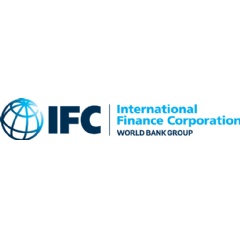Lack of Access to Finance Hinders Vietnamese Women-owned SMEs’ Growth, Contribution to Economy, Reveals New IFC Study
The financing gap is estimated at $1.19 billion for women-owned small and medium enterprises (SMEs) in Vietnam, limiting opportunities for women to develop and grow their businesses, a market study released by IFC, a member of the World Bank Group, finds.
SMEs are vital to Vietnam’s economic growth, accounting for more than 98 percent of its businesses and 50 percent of employment. However, one key segment of this market — women-owned SMEs — is yet to be recognized. Running nearly 45,000 SMEs across sectors, women entrepreneurs bring in similar average annual revenue as men, and are growing at a pace of over 20 percent. Yet, when it comes to bank loans, they tend to get a rough deal compared to men.
The report, entitled “Women-owned enterprises in Vietnam: Perceptions and Potential”, reveals that only 37% of women-owned SMEs have accessed bank loans in the last two years, compared to 47% of male business owners. Though the country’s investment climate is positive for women, most banks either feel there is no need for a different approach to women entrepreneurs, or view the segment as less profitable, higher risk, and lacking in financial management skills.
“The report reframes perceived challenges of serving this segment as an opportunity for banks and other service providers, to enable them to capture a growing market of savvy businesswomen, and to unlock the vast under-tapped potential of women entrepreneurs in Vietnam,” said Kyle Kelhofer, IFC Country Manager for Vietnam, Cambodia and Lao PDR. “It is an opportune time for banks to recognize women-owned SMEs as a separate and strategic customer segment, with uniquely tailored products and services.”
Identifying women-entrepreneurs as a significant force within the SME sector in Vietnam, this study suggests banks to better understand this under-served segment by recognizing their specific financial and non-financial needs and opportunities. Investment should be made in training bank staff on the gender dimension of banking such as gender differences in needs, preferences, and financial behavior, and countering any biases impacting service delivery. Banks could improve products and services to women-owned SMEs by supporting platforms that provide relevant non-financial services to businesswomen, thereby addressing issues such as lack of access to financing, information, skills and new markets.
“This new report helps us learn more about small- and medium enterprises in the growing economy of Vietnam, in particular barriers and opportunities for women entrepreneurs and their need for education and capital to further grow their businesses,” said Jason Moo, Chief Executive Officer of Goldman Sachs (Singapore) Pte.
The study was conducted with support from Goldman Sachs 10,000 Women — a global initiative that provides women entrepreneurs with business and management education, mentoring and networking, and access to capital — and the Umbrella Facility for Gender Equality (UFGE), a World Bank Group multi-donor trust fund addressing key gaps between men and women to deliver development solutions that boost prosperity and increase opportunity for all.
About IFC
IFC, a member of the World Bank Group, is the largest global development institution focused on the private sector in emerging markets. Working with more than 2,000 businesses worldwide, we use our capital, expertise, and influence to create markets and opportunities in the toughest areas of the world. In FY17, we delivered a record $19.3 billion in long-term financing for developing countries, leveraging the power of the private sector to help end poverty and boost shared prosperity. For more information, visit www.ifc.org
( Press Release Image: https://photos.webwire.com/prmedia/7/214455/214455-1.png )
WebWireID214455
This news content was configured by WebWire editorial staff. Linking is permitted.
News Release Distribution and Press Release Distribution Services Provided by WebWire.
